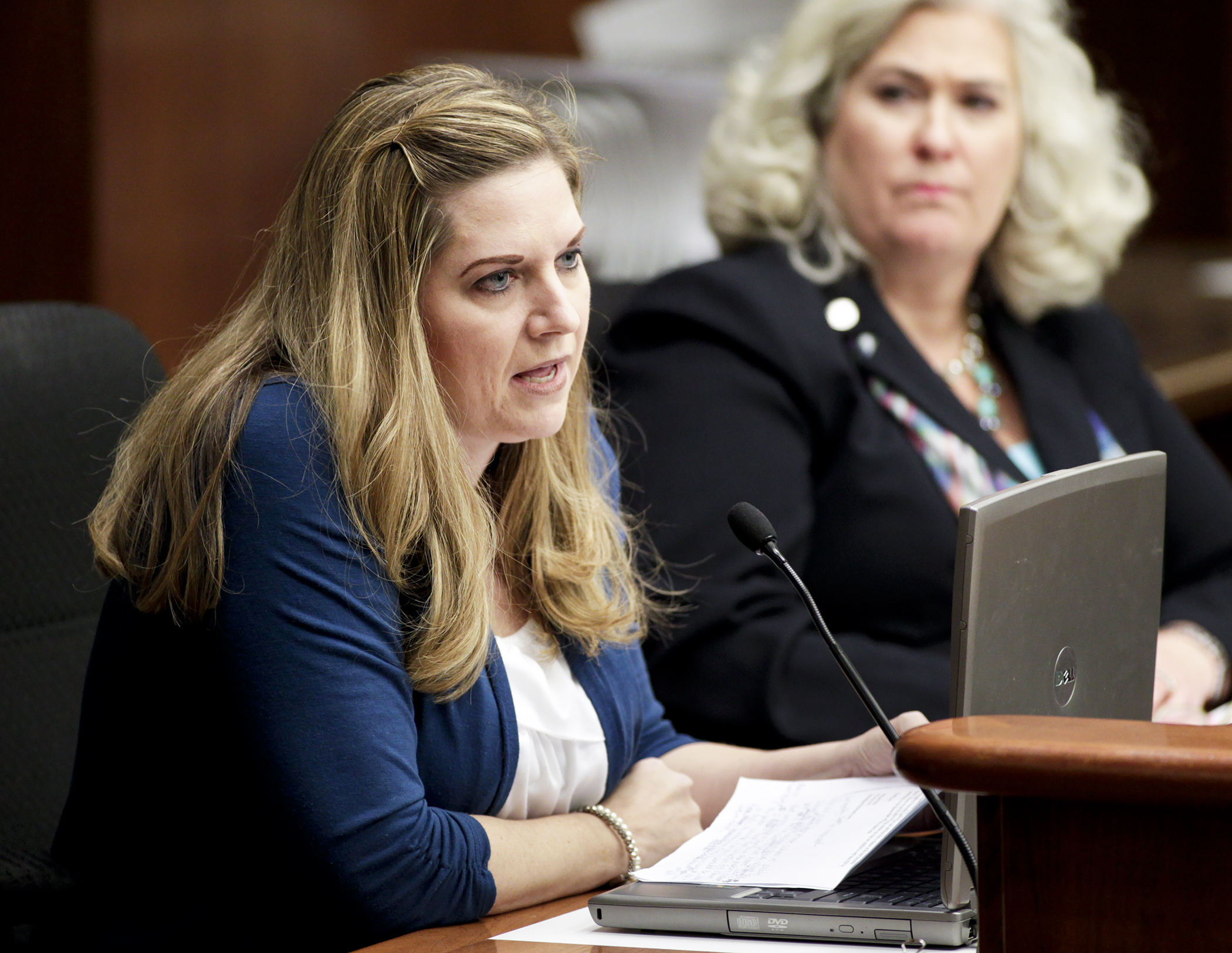Educational savings accounts for children with special needs proposed

Eden Prairie parent Melissa Sirek has finally found a private school with the autism experts three of her children need, but the expertise comes at a steep price. As a single mother, she’s working four jobs to pay for tuition.
Under HF1529, sponsored by Rep. Kelly Fenton (R-Woodbury), parents of children with special needs could apply for a state-funded educational savings account to pay for school tuition as well as therapies, tutoring, transportation and educational supplies and equipment. The House Education Finance Committee held the bill over Tuesday for possible inclusion in an omnibus bill. A companion, SF1313, sponsored by Senate Minority Leader David Hann (R-Eden Prairie), awaits action by the Senate Education Committee.
“A bill like this one proposed would be literally life-changing for a parent such as myself,” Sirek said.
Educational savings accounts would allow parents to customize education to their children’s individual special needs, fitting into Minnesota’s long history of promoting school choice for families, Fenton said.
“We will not succeed with a one-size-fits-all education system,” she said.
Scott Croonquist, executive director of the Association of Metropolitan School Districts, questioned how the proposal aligned with the Legislature’s constitutional duty to provide an equitable public educational system for all children, saying the program would subsidize families who have already chosen to pay for private education.
Adam Peshek, director of choice and impact at the Foundation for Excellence in Education, said educational savings accounts are the “next generation of school choice,” and a move away from the “use it or lose it” model of public educational funding. Five states have established similar programs, and several other states are currently considering them, Peshek said.
Coverage and accountability
Rep. Jim Davnie (DFL-Mpls) asked about public accountability for the use of public dollars for private schools and service providers. Peshek said “real accountability” comes when parents can hold providers accountable.
“These are public dollars – they are not just the parents’ dollars,” Davnie countered.
Under the bill, the amount placed in student educational savings accounts could range from $10,400 for a student with autism, for example, to $27,000 for a student who is deaf and blind. The amounts would be calculated by a formula based on average per-pupil general education revenue and categorical special education revenue applicable to the student. Fenton said there would be no cost to the state to implement the savings accounts, and the bill has no fiscal note. Rep. Mary Murphy (DFL-Hermantown) called for a fiscal note to be prepared.
Assistant Education Commissioner Daron Korte said that in addition to a “fundamental disagreement” about directing public funds to private institutions, the department has logistical concerns about implementing the bill, since federal law would still require school districts to provide services to students with special needs. The educational savings accounts would be unlikely to cover all needs of children with severe and highly complex disabilities, he said, and the bill would not create a system of transparency to ensure that students receive the services they are entitled to under federal and state law.
“These are the most vulnerable students in the state and we owe it to them to make sure their rights are being protected,” he said.
Related Articles
Search Session Daily
Advanced Search OptionsPriority Dailies
Ways and Means Committee OKs proposed $512 million supplemental budget on party-line vote
By Mike Cook Meeting more needs or fiscal irresponsibility is one way to sum up the differences among the two parties on a supplemental spending package a year after a $72 billion state budg...
Meeting more needs or fiscal irresponsibility is one way to sum up the differences among the two parties on a supplemental spending package a year after a $72 billion state budg...
Minnesota’s projected budget surplus balloons to $3.7 billion, but fiscal pressure still looms
By Rob Hubbard Just as Minnesota has experienced a warmer winter than usual, so has the state’s budget outlook warmed over the past few months.
On Thursday, Minnesota Management and Budget...
Just as Minnesota has experienced a warmer winter than usual, so has the state’s budget outlook warmed over the past few months.
On Thursday, Minnesota Management and Budget...